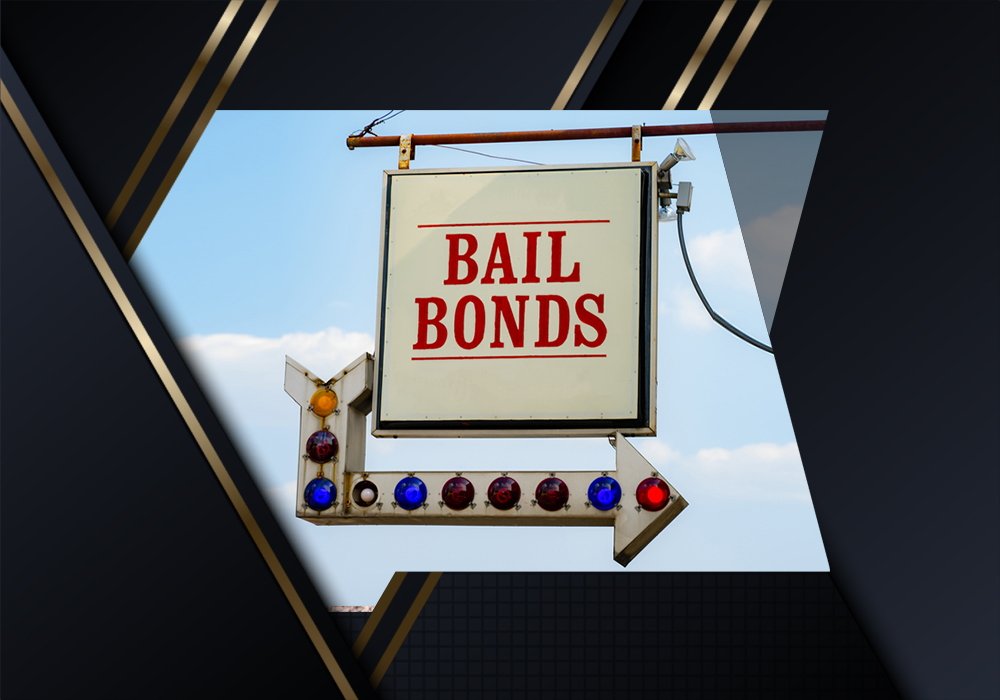Just how to Browse the Complexities of a Bail Bond: Tips for First-Time Users
Steering the intricacies of a bail bond can be frustrating for those not familiar with the process. Many new customers discover themselves confused by the terms and responsibilities included. Understanding key principles such as premiums and security is crucial. In addition, choosing a reliable bondsman can considerably ease the journey. There are essential elements and usual pitfalls that can make complex issues further. Discovering these can supply useful understandings for any person facing this difficult circumstance.
Understanding Bail Bond Terminology
What essential terms should one recognize with when traversing the world of Bail bonds? Comprehending fundamental terms is vital for navigating Bail bonds efficiently. The term "Bail" describes the amount of cash or home required to safeguard an offender's release from protection, guaranteeing their appearance in court. "Bail bond" represents an agreement in between the offender, the court, and a bondsman, who provides the Bail amount for a cost, usually 10-15% of the complete Bail. "Collateral" may be called for, entailing assets vowed to assure repayment if the accused fails to appear (bail bonds service). "Premium" is the non-refundable charge paid to the bondsman for their solutions. In addition, "forfeit" happens if the accused does not abide by court looks, causing the loss of the Bail amount. Experience with these terms empowers individuals to make informed decisions during the Bail process
The Different Kinds Of Bail Bonds
When taking into consideration the various choices for protecting an offender's launch, one might wonder about the various kinds of Bail bonds readily available. One of the most typical type is the surety bond, where a Bail bondsman guarantees the full Bail quantity for a charge, normally around 10%. An additional alternative is a money bond, which calls for the offender or their family members to pay the entire Bail quantity in money upfront, refundable upon court look. Residential property bonds involve the usage of property as collateral to secure the Bail quantity. Furthermore, some jurisdictions use federal bonds for government offenses, which have particular demands. Ultimately, there are migration bonds for people detained by migration authorities. Each type offers a distinct objective and may vary regarding expense and demands, making it vital for novice individuals to comprehend their choices completely prior to proceeding.
The Bail Bond Process Explained
Understanding the bail bond process is crucial for any person steering the judicial system. When an individual is jailed, a court sets a Bail quantity based upon the severity of the costs and the accused's flight risk. If the Bail is unaffordable, a bail bond can be gotten through a licensed bondsman. The accused or co-signer generally pays a non-refundable cost, generally around 10% of the overall Bail quantity.
When the bond is safeguarded, the bail bondsman ensures the court that the offender will stand for all arranged hearings. If the defendant falls short to show up, the bail bondsman is in charge of paying the complete Bail quantity, which can result in recuperation efforts to find the person. Throughout this procedure, communication with the bondsman is vital, as they supply guidance and assistance to guarantee conformity with court demands and commitments.
Your Civil liberties as a Co-Signer
Co-signers play a necessary role in the bail bond procedure, as they are legally accountable for ensuring that the defendant sticks to the problems of the bond. This responsibility features details legal rights that co-signers must recognize. To start with, co-signers deserve to obtain full disclosure relating to the pop over to this site regards to the bond, consisting of charges and possible liabilities. They also deserve to be educated if the accused violates any type of conditions of the bond, such as failing to appear in court.
Furthermore, co-signers can request a duplicate of the bail bond arrangement for their documents. They are entitled to recognize the repercussions of their economic dedication, including the opportunity of being held responsible for the complete quantity of the bond if the accused does not conform. Inevitably, co-signers have the right to withdraw their assistance under certain problems, although this might need alerting the bail bond agent in breakthrough.

Usual Mistakes to Avoid
Navigating the bail bond process can be complicated, and co-signers frequently make numerous typical errors that can result in complications. One major error is stopping working to read the entire Bail agreement, which may have crucial terms that influence their monetary obligation. Furthermore, co-signers often ignore the value of comprehending the offender's circumstance, including their court dates and possible effects of non-compliance. An additional frequent error is ignoring to maintain interaction with the bondsman, which can hinder the process if issues emerge. Co-signers may also overlook the economic effects of Bail, not totally realizing the charges entailed or the opportunity of losing collateral. Lastly, they might assume that once Bail is posted, their obligation ends, not realizing that they remain responsible until the situation is solved. Preventing these pitfalls can greatly ease the bail bond experience for first-time users.
Often Asked Concerns

Exactly How Do Bail Bond Companies Figure Out the Premium Amount?
Bail bond business commonly identify the costs quantity based upon the complete Bail quantity, the risk connected with the accused, and the business's policies - bail bonds service. Aspects like the accused's criminal background and flight risk likewise affect this decision
Can I Discuss the Regards To a Bail Bond?
The possibility of working out bail bond terms differs by firm. Some bail bondsmans may provide flexibility, while others stick purely to developed standards. It is suggested to go over options straight with the bail bond agent for clearness.
What Happens if the Accused Misses Their Court Date?
A bench warrant may be released for their arrest if an offender misses their court date. Furthermore, the bail bond might be forfeited, resulting in economic effects for the co-signer and possible lawful complications for the accused.
Are Bail Bond Fees Refundable After the Situation Ends?
Bail bond charges are commonly non-refundable, no matter the case result. This fee compensates the bond representative for the service of protecting the offender's launch, covering threats and management expenses entailed in the process.
Can I Utilize Collateral Various Other Than Property for a Bail Bond?
The concern of using security beyond residential or commercial property for a bail bond commonly arises. Lots of bail bond representatives accept numerous discover here types of security, such as cars or useful things, however plans may differ by firm and jurisdiction.
"Bail bond" denotes an agreement in between the offender, the like this court, and a Bail bondsman, who supplies the Bail quantity in exchange for a fee, generally 10-15% of the overall Bail. The most typical type is the guaranty bond, where a Bail bondsman guarantees the complete Bail quantity in exchange for a fee, commonly around 10%. If the Bail is unaffordable, a bail bond can be obtained with an accredited Bail bondsman. Co-signers play an important duty in the bail bond procedure, as they are legitimately accountable for making certain that the defendant sticks to the conditions of the bond (bail bonds service). Bail bond companies generally identify the costs amount based on the overall Bail amount, the danger connected with the offender, and the firm's policies